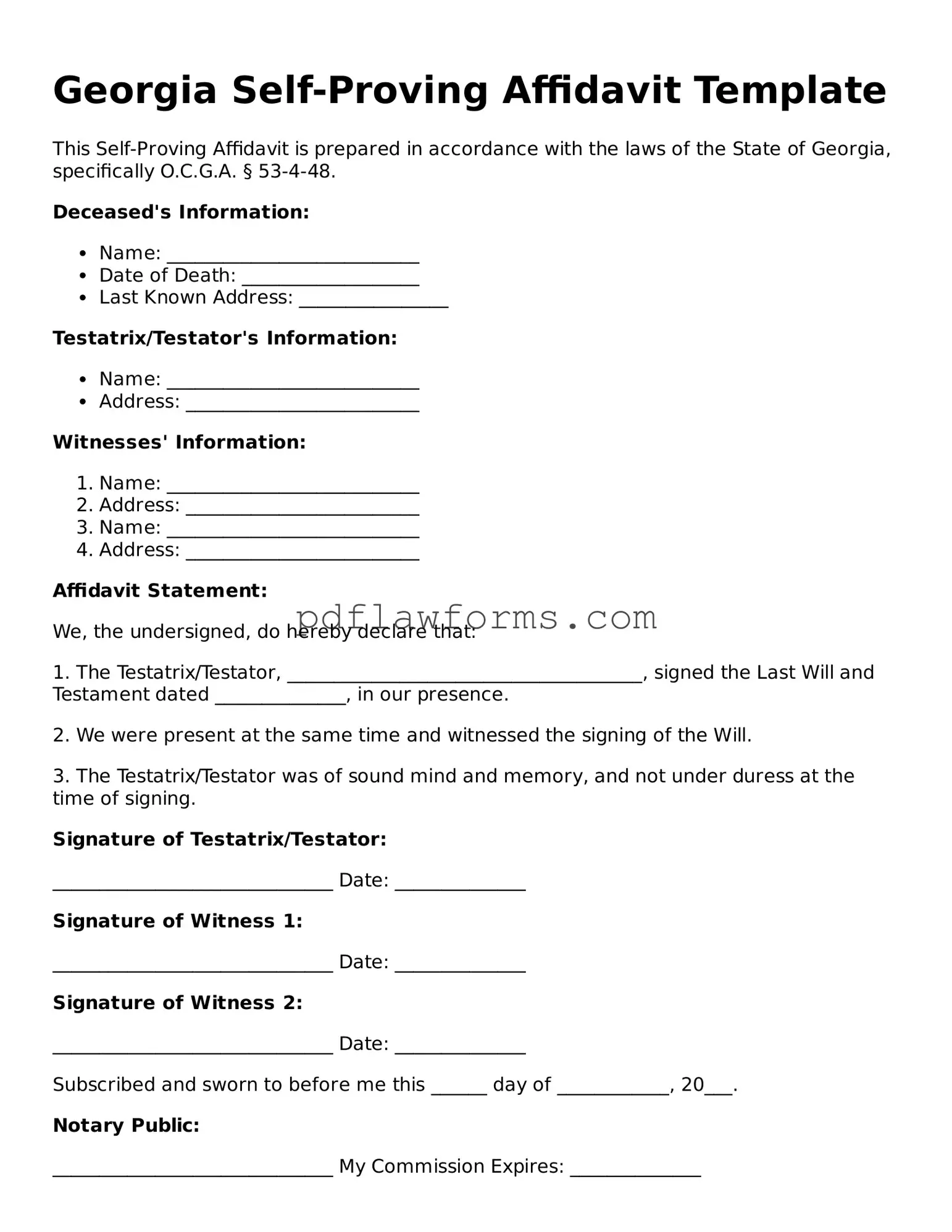Self-Proving Affidavit Form for the State of Georgia
The Georgia Self-Proving Affidavit is a legal document that allows a testator's will to be validated without the need for witnesses to testify in court. This form streamlines the probate process, providing a way for individuals to affirm that they signed their will willingly and in the presence of witnesses. To ensure your will is self-proving, consider filling out the form by clicking the button below.
Make My Document Online

Self-Proving Affidavit Form for the State of Georgia
Make My Document Online
You’re halfway through — finish the form
Edit and complete Self-Proving Affidavit online, then download your file.
Make My Document Online
or
⇩ Self-Proving Affidavit PDF
